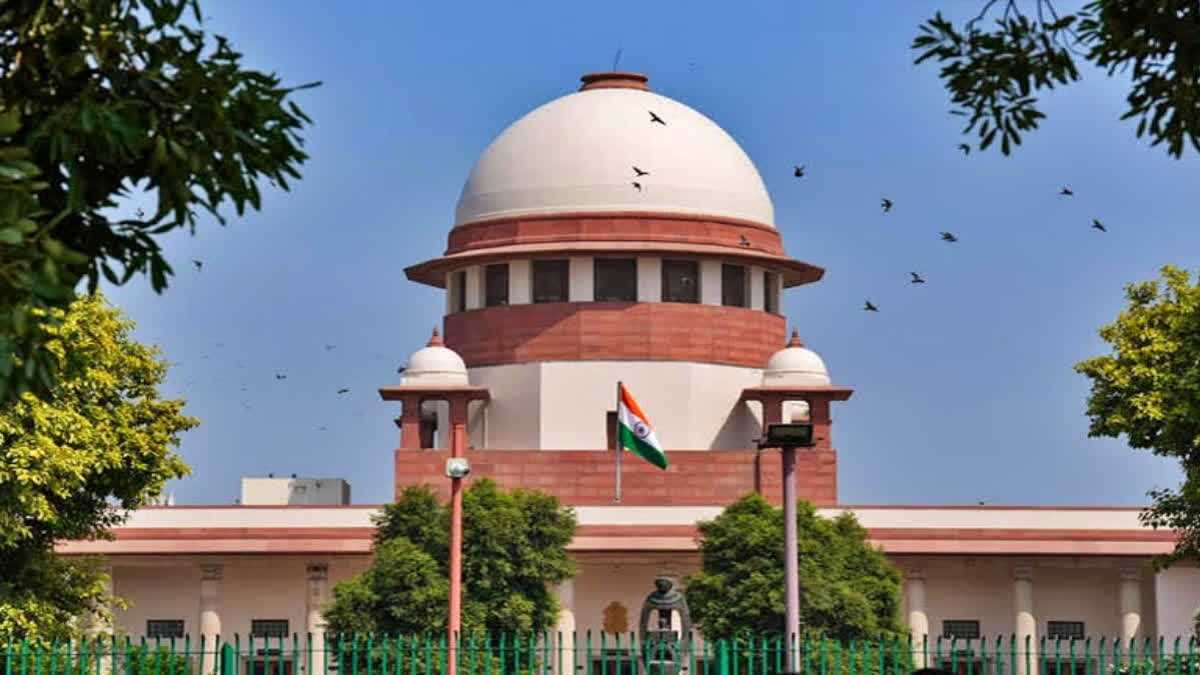New Delhi: The Supreme Court Tuesday observed that central assessments may be required if there were cross-transactions between individuals while hearing pleas filed by Congress leaders Rahul Gandhi, Sonia Gandhi, and Priyanka Gandhi Vadra against the transfer of their tax assessments to the central circle.
Senior advocate Arvind Datar, representing the Gandhis and trusts associated with them, submitted before a bench of justices Sanjiv Khanna and S V N Bhatti that because of a search in fugitive arms dealer Sanjay Bhandari's case, the I-T authorities have tagged all these as supplementary cases because of Robert Vadra, Priyanka Gandhi's husband.
Datar said after the faceless scheme came in 2019, his clients were shifted to faceless assessment and notice was issued for documents. "But all of a sudden there is a person called Sanjay Bhandari against him various proceedings are pending," he said.
“We are charitable trusts, we have already got the faceless assessment and our assessments are being completed,” Datar said. Justice Khanna said there are two things as far as trust is concerned. "There may be a separate issue but as far as three individuals are concerned because they are related to that party, normally a centralized assessment has to be done and if there are cross-transactions, centralised assessment may be required".
Datar said suppose there are connected parties and when a raid is conducted the agency comes across several incriminating documents so on all incriminating persons they issue notice, as they are associated persons. Justice Khanna said if notices were issued it would have been “certainly centralized assessment automatically that does not mean regular assessment cannot be made subject matter….”. Justice Khanna asked the Centre’s counsel, “Why the trust, because trust may not be having any….because the trustee is involved in something…”.
The Gandhis have contended that they had nothing to do with the Bhandari group's cases and there has been no instance of search or seizure in their cases. Bhandari is wanted in India on charges of corruption and money laundering and he has been allegedly linked to Robert Vadra over a London-based flat. Vadra has denied any business dealings with Bhandari.
The apex court was hearing a batch of pleas by the Congress leaders, as well as the Aam Aadmi Party (AAP) and five charitable trusts linked with the Gandhis against the orders of Income Tax (I-T) authorities to transfer their tax assessments to the central circle.
Justice Khanna also questioned senior advocate Abhishek Manu Singhvi, representing AAP, why there was a five-month delay in filing the writ petition. He said, "In cases like this, delay can be fatal. Why was there a delay?" Singhvi submitted that a five-month delay should not come in the way of the larger issue. However, Justice Khanna did not agree with this contention.
The top court made it clear that it is only concerned with the legal issue and not with the politics. After hearing submissions, the apex court scheduled the matter for further consideration on October 9. In May this year, the Delhi High Court dismissed a batch of nine petitions including three by Congress leaders Sonia Gandhi, Rahul Gandhi and Priyanka Gandhi Vadra, and another by the Aam Aadmi Party (AAP) challenging the orders of the income tax department to transfer their tax assessment from the faceless assessment to the central circle.
Gandhis primarily opposed their tax assessment along with Bhandari's group. The faceless assessment scheme removes physical contact between the taxpayer and the taxman by using artificial intelligence and machine learning to randomly select tax cases.
Also read: SC dismisses sacked IPS officer Sanjiv Bhatt's pleas, slaps Rs 3 lakh fine



